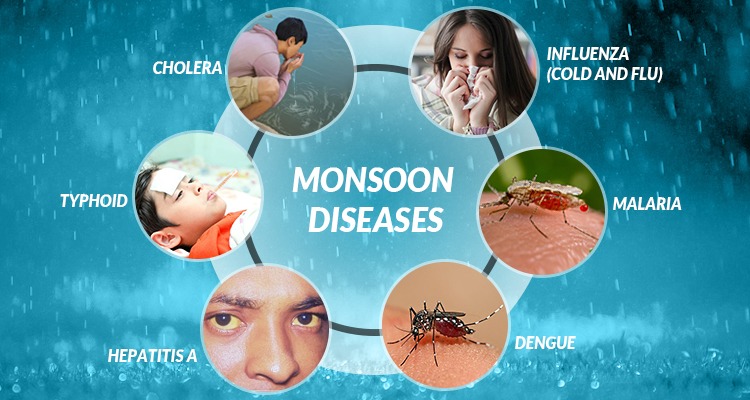Introduction:
The monsoon season brings much-needed relief from scorching summer heat,
but it also brings an increased risk of various diseases, especially in children.
Preventing monsoon diseases in children naturally is essential to keep them
healthy and happy during this rainy season.
In this article, we’ll explore seven effective tips to safeguard your little ones from
monsoon ailments while maintaining their overall well-being.
Maintain Hygiene:
Good hygiene practices are the cornerstone of disease prevention.
Encourage your children to wash their hands frequently with soap and clean
water.
Ensure they keep their nails short and clean, as bacteria and germs can easily
hide beneath long nails.
Stay Hydrated:
During monsoon, the humidity levels rise, and children may not feel as thirsty as
they do in the summer.
However, it’s crucial to keep them well-hydrated to prevent illnesses.
Offer them clean, boiled water or herbal teas, and avoid giving them street-side
or unfiltered water.
Balanced Diet:
A balanced diet rich in vitamins and minerals is vital for a robust immune system.
Include seasonal fruits and vegetables in your child’s diet, as they are packed
with essential nutrients that help strengthen immunity.
Ensure they consume freshly prepared, home-cooked meals to avoid foodborne
illnesses.
Mosquito Control:
Mosquito-borne diseases like dengue and malaria are prevalent during the
monsoon season.
Use mosquito nets and repellents, especially during bedtime.
Clear stagnant water around your home to eliminate breeding grounds for
mosquitoes.
Dress Smartly:
Dress your children in light, breathable fabrics that can wick away moisture.
While it may be tempting to bundle them up during rainy weather, avoid
overdressing, as it can lead to sweating and discomfort, which may increase the
risk of infections.
Boost Immunity Naturally:
Incorporate immunity-boosting foods like ginger, turmeric, and honey into your
child’s diet.
These natural ingredients have antimicrobial properties and can help prevent
infections.
Consult a pediatrician before introducing any new supplements.
Outdoor Play with Caution:
Encourage your children to play outdoors, but be cautious about muddy puddles
and stagnant water.
These can be breeding grounds for bacteria and parasites.
Ensure they wash their hands and feet thoroughly after outdoor activities.
Conclusion:
Preventing monsoon diseases in children naturally is essential for their wellbeing.
By following these seven tips – maintaining hygiene, staying hydrated, providing
a balanced diet, controlling mosquitoes, dressing smartly, boosting immunity
naturally, and allowing outdoor play with caution – you can significantly reduce
the risk of your child falling ill during the rainy season.
Prioritizing their health will ensure that they enjoy the monsoon to the fullest
without any health concerns.
![]()











